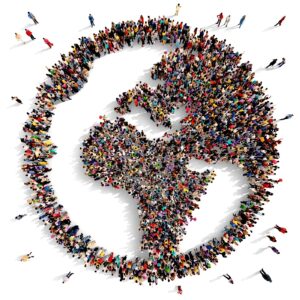“Diversity” needs a re-think. For the past decade, organisations focused on ‘diversity’ while ‘inclusion’ remained in the background. Given demographic shifts, a multi-generational workforce, more people working outside their home country as well as a greater number of working women, the attention on diversity is understandable.
If we define diversity as differences in race, gender, sexual orientation, socio-economic status, work experience, philosophical perspectives, abilities and thinking styles, I think it’s now safe to say that organisations are diverse. So the business case for diversity is quite clear, but how does a company actually get everyone to work together as one team?
I’d like to propose that ‘inclusion’ offers answers.
If I define inclusion as being fully engaged with all employees, there must now be greater effort to engage, listen and include groups that are under-represented or excluded. As population shifts and talent migrates, the increasing importance of inclusive human capital will play an integral role to corporate sustainable growth.
Can greater diversity lead to greater inclusion?
It’s not only diversity which makes a company a better place to work; it is how to listen and include collective voices that creates growth. Inclusion starts with the recruitment process, long before a potential employee arrives. The on-boarding process should begin once the contract is signed, and continue for the next few months. In addition, regular career conversations seeking insights on the role and what’s working should begin on day one. Frequent, short, targeted conversations exploring interests – not performance measures – engage both the individual and organisation.
Systems and processes must then be examined. The world of work has changed dramatically, but organisational systems often lag behind. Leadership models and competency frameworks (which largely originated in the US or UK) are irrelevant for a global workforce. Yet development programs are still designed with an outdated framework. It is difficult to learn how to understand differences when the corporate structure rewards specific behaviors and traits. Rewards hinder inclusion because rewards revolves around a culture of fitting in, rather than standing out. We all gravitate towards those who talk and behave like us.
This ‘similarity’ bias seeps into every organisational process and program, and chips away at building inclusive work environments.
I see this all the time; talent reviews look for ”executive presence”, but the subjective nature of “presence” is biased. This elusive quality is often equated with presentation skills, commanding a room, and confidence. But such criteria are very different cross-culturally. A few years ago, a New York based i-bank rolled out a global communication program designed to break down cultural barriers. The end result was an assimilation process which steadily eroded much of the bank’s culturally diverse talent.
We need to shift our perspective, rather than viewing people through a prescribed leadership construct. Pivoting from ‘what’s wrong’ to ‘what’s working’ creates a positive expectation through differences or similarities in strengths, interests and character. This moves from ”fixing” individuals to repairing organisational processes. When strengths guide such a conversation, talent processes and assessments become inclusive by default.
To ignore inclusion is to potentially lose good employees, as well as diminishing the company’s brand and reputation. Inclusion is critical, and takes more time and thought than hiring diversely. Cross-cultural training skims the surface, with a tendency to categorise people, and usually doesn’t work. Learning to be inclusive must drill deeper, to accept differences rather than shape employees to be more like us. Inclusion is about tolerance, and the ability to recognize, appreciate and accept strengths.
Jane Horan is the author of How Asian Women Lead: Lessons for Global Corporations , and I Wish I’d Known That Earlier In My Career, and consults with multinationals on building diverse, inclusive and engaged work environments learn more at The Horan Group



